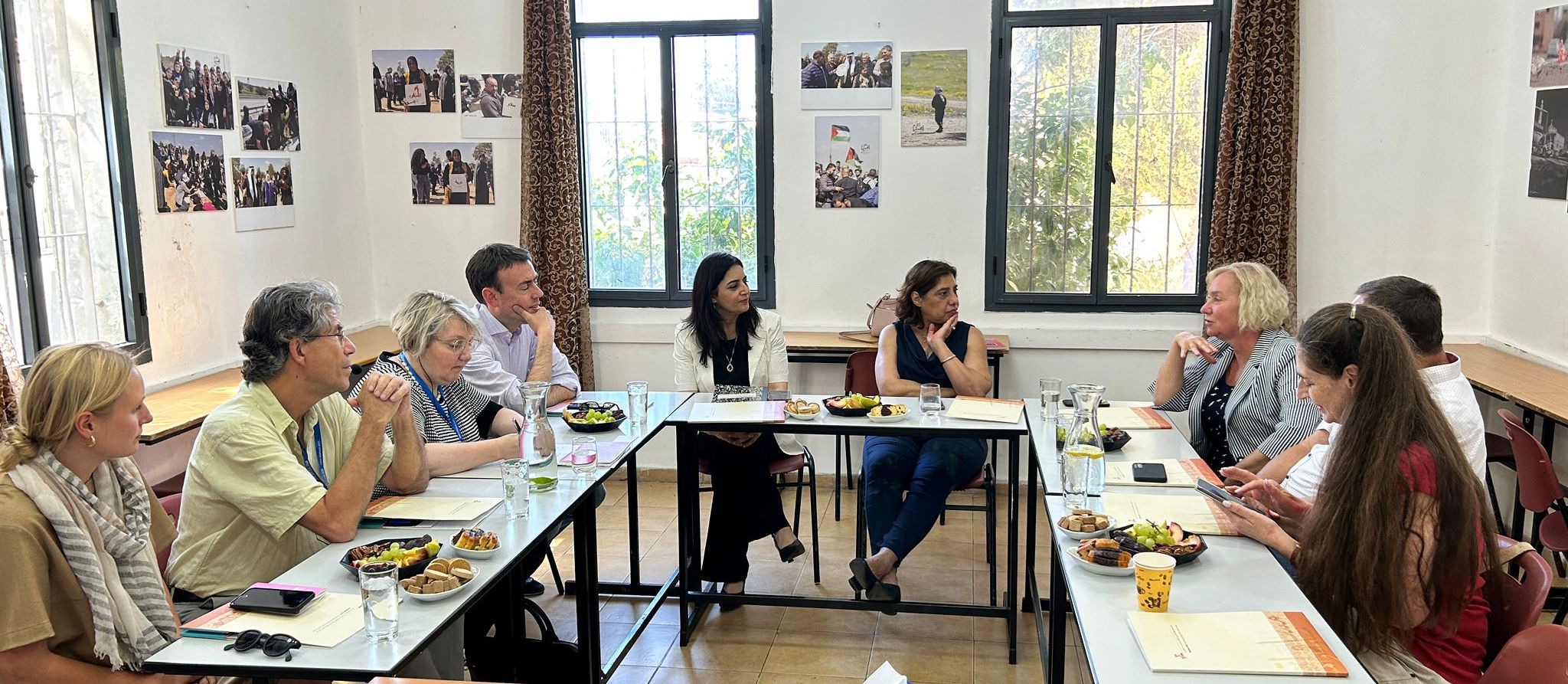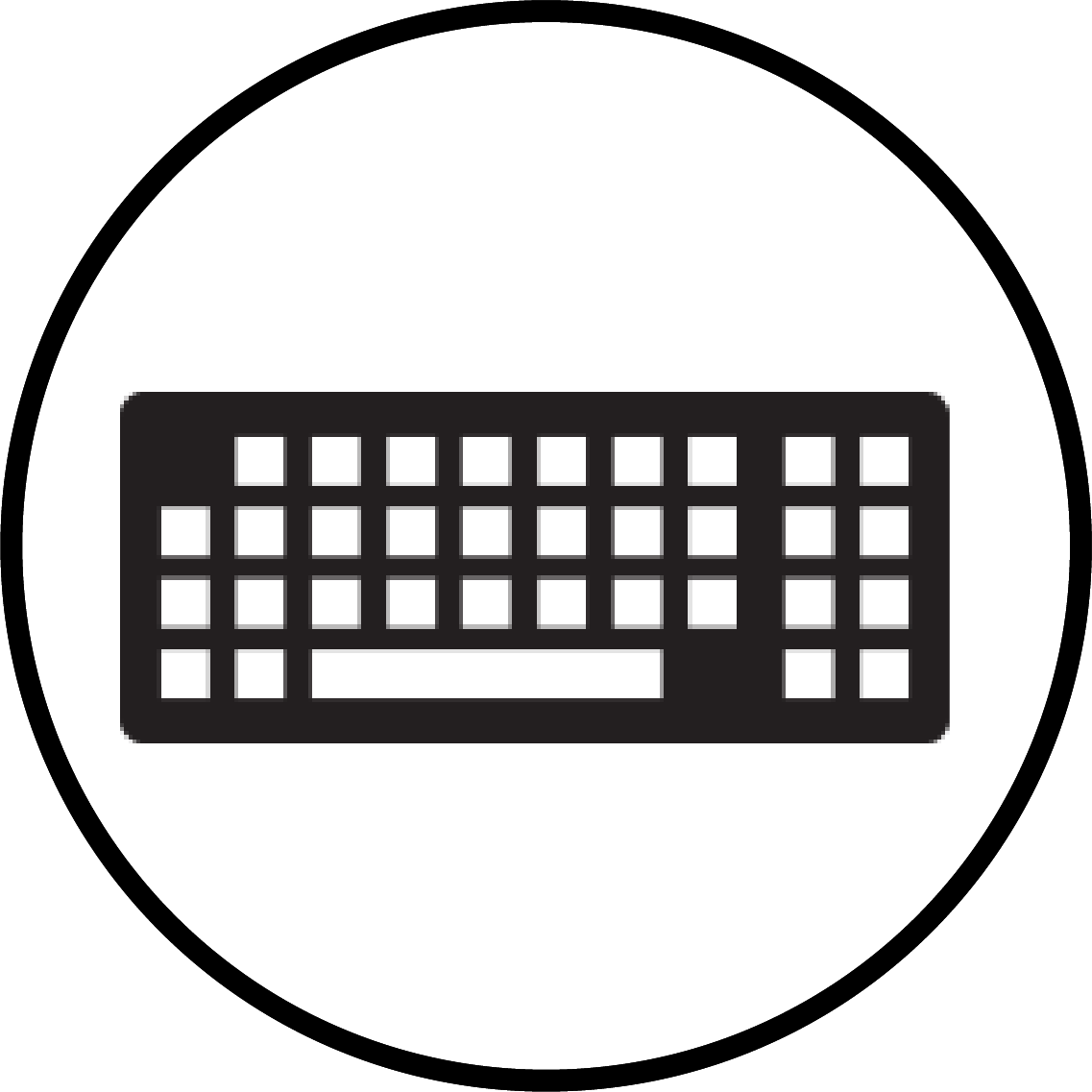
Yesterday (Monday, June 5), representatives of the Mossawa Center met with members of the German Parliament to discuss the challenges faced by the Palestinian Arab community in Israel. The meeting, organized in cooperation with the Friedrich-Ebert-Stiftung (FES) Israel, shed light on the discrimination and systemic issues affecting marginalized communities in the country.
The meeting was attended by the Chief Whip of the SPD Group in the Bundestag Katja Mast, Bundestag Member and the SPD’s Spokesperson for Foreign Affairs Nils Schmid, Haifa City Council Member Shahira Shalabi, FES Israel’s Director Dr. Paul Pasch and Project Manager Judith Stelmach, Russian journalist and Sowtna news editor Elena Shafran, and Mossawa Center’s Executive Director Suha Salman Mousa, Legal Advocacy Coordinator Nebal Abu Ardat, and Economic Advocacy and State Budget Analysis Coordinator Mohammad Abu Leil.
Suha Salman Mousa introduced the organization's work, emphasizing its focus on analyzing government budgets and decisions. Shahira Shalabi stated, “the current right-wing government is canceling budgets meant for the Palestinian Arab community such as the budgets intended for the development of public transportation in Palestinian Arab cities.”
“Our work is to monitor the implementation and spending of the government budgets intended for the Palestinian Arab community and to track the impact of the projects they were spent on in terms of closing the gaps between the Arab and Jewish community,” said Mohammed Abu Leil.
Suha Salman Mousa highlighted the discrepancy between what the government promises to invest in the Palestinian Arab community and what is actually implemented. “On paper the Finance Ministry says there are 30 billion NIS [$8B] for 5 years, but in reality, we don’t see this. From our experience with Government Decision 922, they promised 15 billion NIS [$4B] but we only received 6 billion NIS [$1.61B], even after they extended the plan by one year,” she explained.
Mossawa Center employs various advocacy tools to monitor budget implementation and uses workshops and advocacy training to empower Palestinian Arab civil society. Salman Mousa stressed the importance of amplifying their voice in both Israeli and international media, highlighting the need for solidarity and cooperation with international actors.
The Mossawa Center's projects, such as the Mahalli Project that is conducted in cooperation with FES Israel and the Solidarity Project, were also discussed. These initiatives aim to engage with marginalized groups in Israeli society, including Palestinian Arab women and the Russian-speaking and Ethiopian communities. The Mossawa Center works to bridge the gaps between marginalized communities and facilitate mutual understanding and cooperation. This has opened avenues for solidarity by addressing common struggles, such as police violence faced by both the Palestinian Arab and Ethiopian communities. The Mahalli Project aims to increase the number of Palestinian Arab women running for elected office in the upcoming municipal elections to be held at the end of October 2023.
The German Parliament members expressed their understanding of the systemic discrimination faced by the Palestinian Arab community and inquired about the situation of younger immigrants from Russia and the former USSR. The Mossawa Center acknowledged the potential for collaboration with these communities and described efforts to change perceptions and promote tolerance among Russian-speaking Israelis towards Palestinian Arabs. They highlighted the Solidarity Project, which includes workshops, tours, and a multilingual news website called Sowtna aimed at fostering understanding and countering negative stereotypes.
To foster inclusivity, the Mossawa Center plans to expand Sowtna to include Amharic, the language spoken by the Ethiopian community. This step demonstrates the Mossawa Center’s commitment to catering to the diverse linguistic needs of marginalized communities.
Regarding affirmative action, FES Israel Project Manager Judith Stelmach mentioned that the public sector in Israel is required by law to submit annual reports on the demographic makeup of its employees. However, this obligation does not apply to the private sector. This makes it difficult to monitor discrimination on ethnic and gender basis in the labor market at large.
The conversation also touched upon the deteriorating situation for marginalized communities in Israel, with Shahira Shalabi citing increasing discrimination against the LGBTQ+ community and women. She pointed out that the current right-wing government's policies are influenced by ultra-religious and conservative parties. Suha Salman Mousa emphasized the radical nature of the ultra-Orthodox and religious coalition parties compared to previous governments, highlighting the need to address extremism.
The meeting concluded with discussions on the empowerment of the Palestinian Arab voice in Israeli politics. The Mossawa Center stressed the importance of Palestinian Arab participation in the political scene and the need for unity among Arab parties to maintain interest and motivation among voters. Shahira Shalabi expressed support for a joint Jewish-Arab left-wing camp and praised the Mossawa Center's commitment to Jewish-Arab partnership.
Suha Salman Mousa acknowledged the importance of cooperation with other marginalized communities in Israel to combat racism and effect political change. She highlighted the Mossawa Center's Solidarity Project as a means of reshaping the political landscape by diversifying the Knesset and promoting activism in the streets.
The meeting shed light on the challenges faced by the Palestinian Arab community in Israel, including systemic discrimination, limited access to government budgets, and the need for increased political participation. More importantly, the meeting highlighted the importance of international solidarity and cooperation to address these issues and build a more inclusive society in Israel.

























